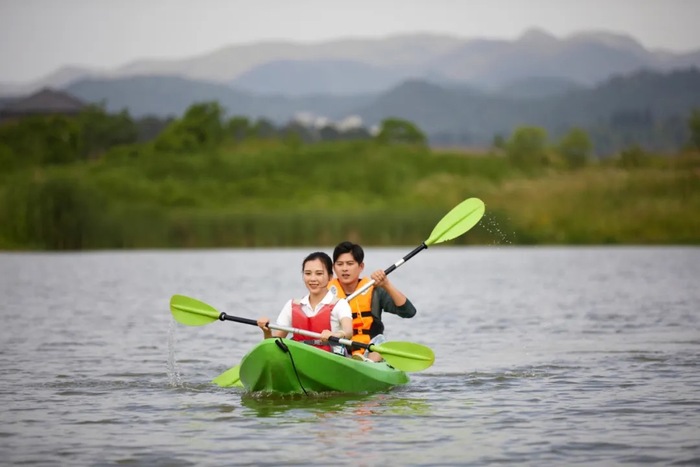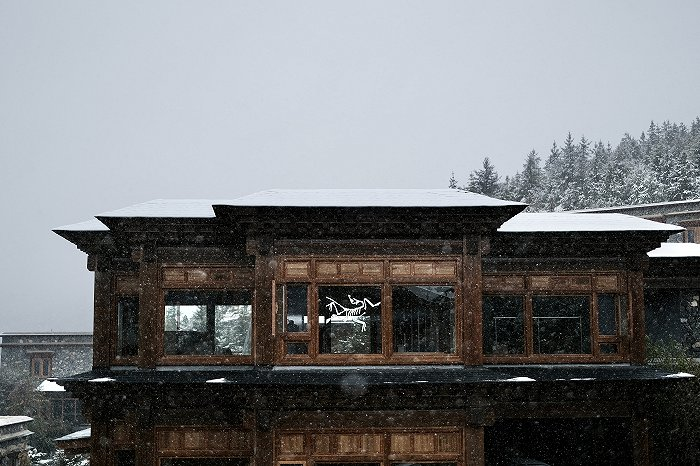As outdoor activities gain popularity, integrating these elements into hotel services is becoming a strategic focus.

by Qin Siyue
Hotels worldwide are capitalizing on the growing interest in outdoor sports and nature-focused travel. Marriott International, for instance, has partnered with Postcard Cabins and Trailborn to expand its outdoor lodging offerings. These partnerships reflect a broader trend of integrating outdoor experiences into hospitality.
In China, hotels are adopting similar strategies, combining outdoor activities with tailored accommodations. Club Med, owned by Fosun Tourism Group, integrates nature-focused experiences across its resorts through an all-inclusive model that bundles accommodations, meals, and activities.
The Joyview Anji Resort in Zhejiang exemplifies this, offering guided hikes through bamboo forests, along with cycling, archery, and traditional sports like basketball. This flexible model allows Club Med to incorporate outdoor elements at various locations, appealing to adventure-seekers and health-conscious travelers. The strategy has been effective, contributing to Fosun Tourism’s 10.65 billion yuan in revenue in the first half of 2024, an 11% year-on-year increase.

Collaborations with outdoor brands further enhance this integration. Songtsam Group partnered with Arc'teryx to establish a lounge at its Shangri-La Linka Hotel, offering services like gear rentals, mountain workshops, and clothing cleaning. Similarly, the Zhan Yun Salomon Hotel in Songhua Lake Resort incorporates Salomon branding into its design, providing ski rentals and winter sports-themed services.

China’s outdoor sports market is growing steadily but remains polarized, with consumers favoring either premium brands like Arc'teryx or budget-friendly alternatives like Camel. Hotels catering to outdoor enthusiasts are aligning with the premium segment, targeting affluent travelers seeking unique, high-quality experiences.
According to a Tmall Innovation Center research, six new outdoor-related consumer markets in China surpassed 10 billion yuan in transactions in 2022, with the "outdoor + hotels" concept emerging as a key growth area.
CITIC Securities reports that China’s outdoor gear retail market reached 25.36 billion yuan in 2021 and is projected to exceed 100 billion yuan by 2035. However, the market’s penetration rate of 28.3 percent remains well below the 50 percent seen in overseas markets, signaling significant growth potential.
As outdoor activities gain popularity, integrating these elements into hotel services is becoming a strategic focus. By collaborating with established outdoor brands and offering activity-driven experiences, hotels are positioned to meet the evolving preferences of health-conscious and active travelers.